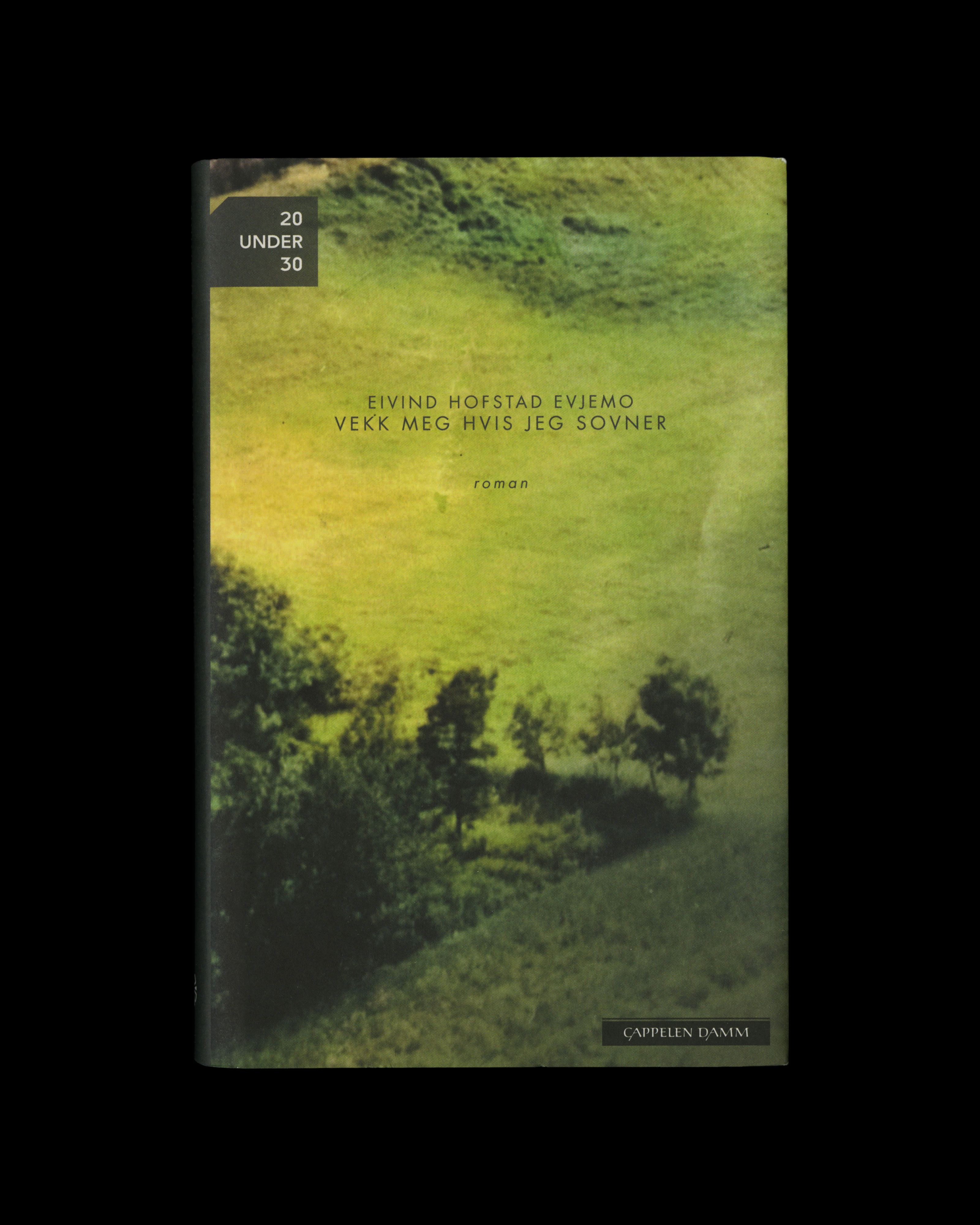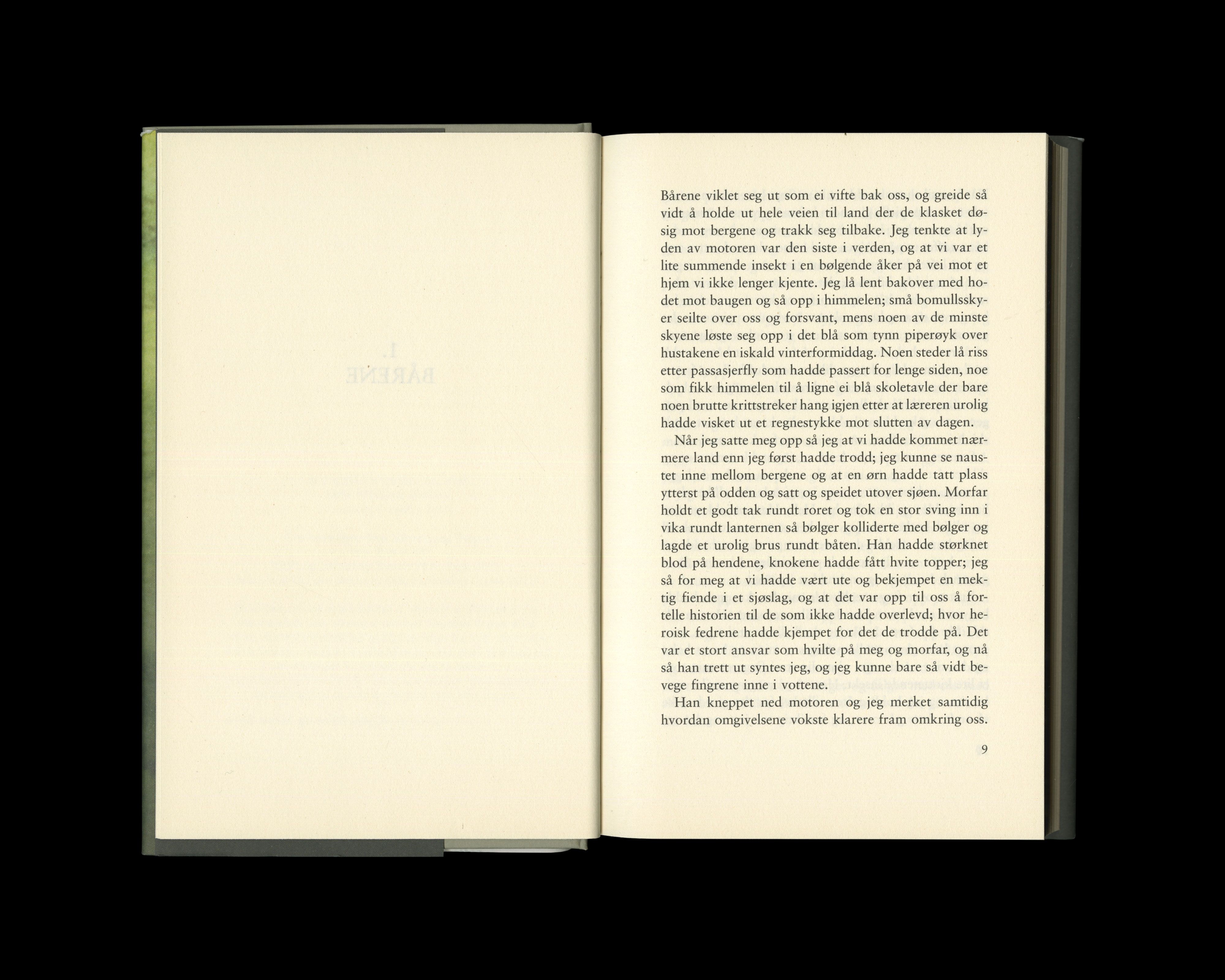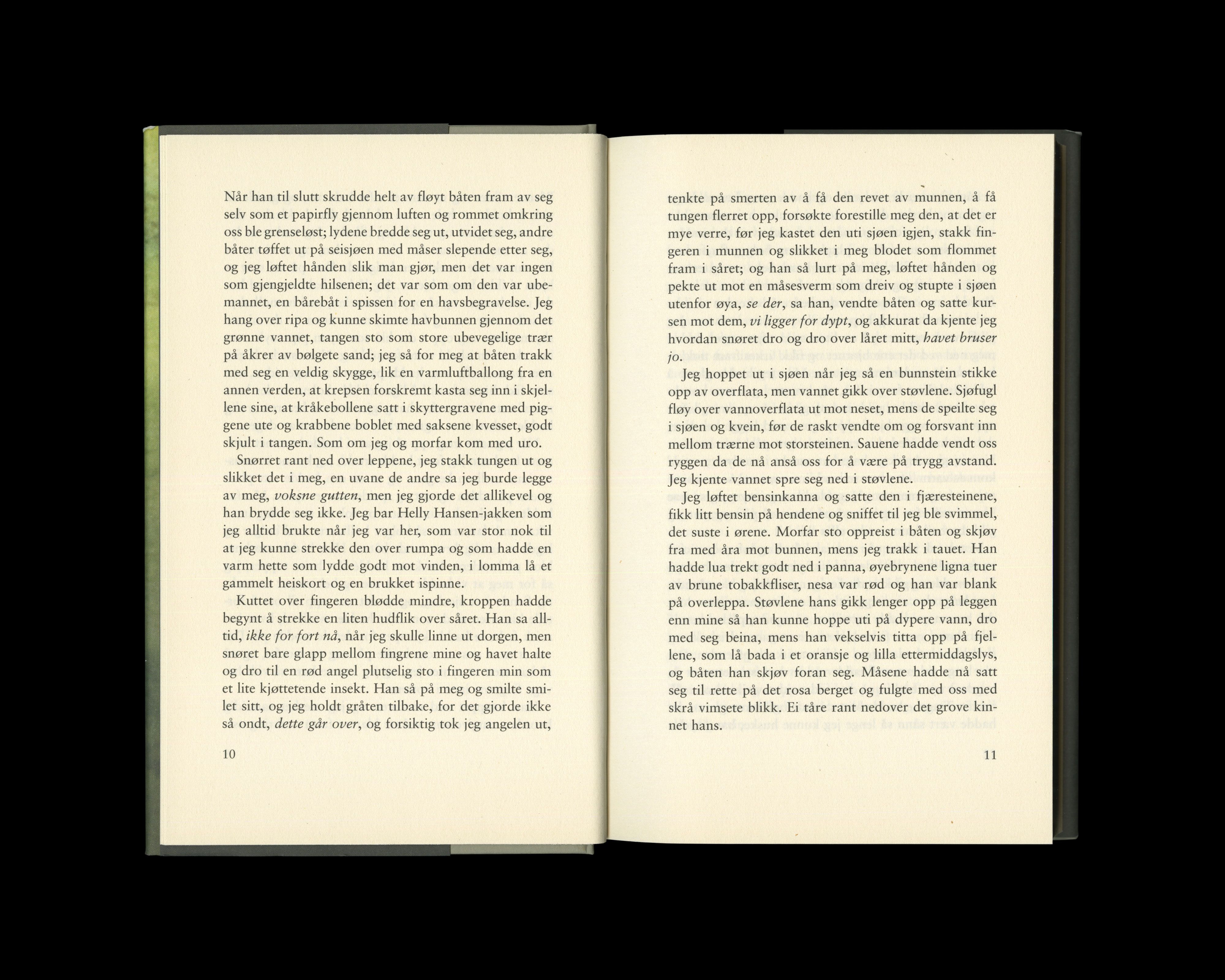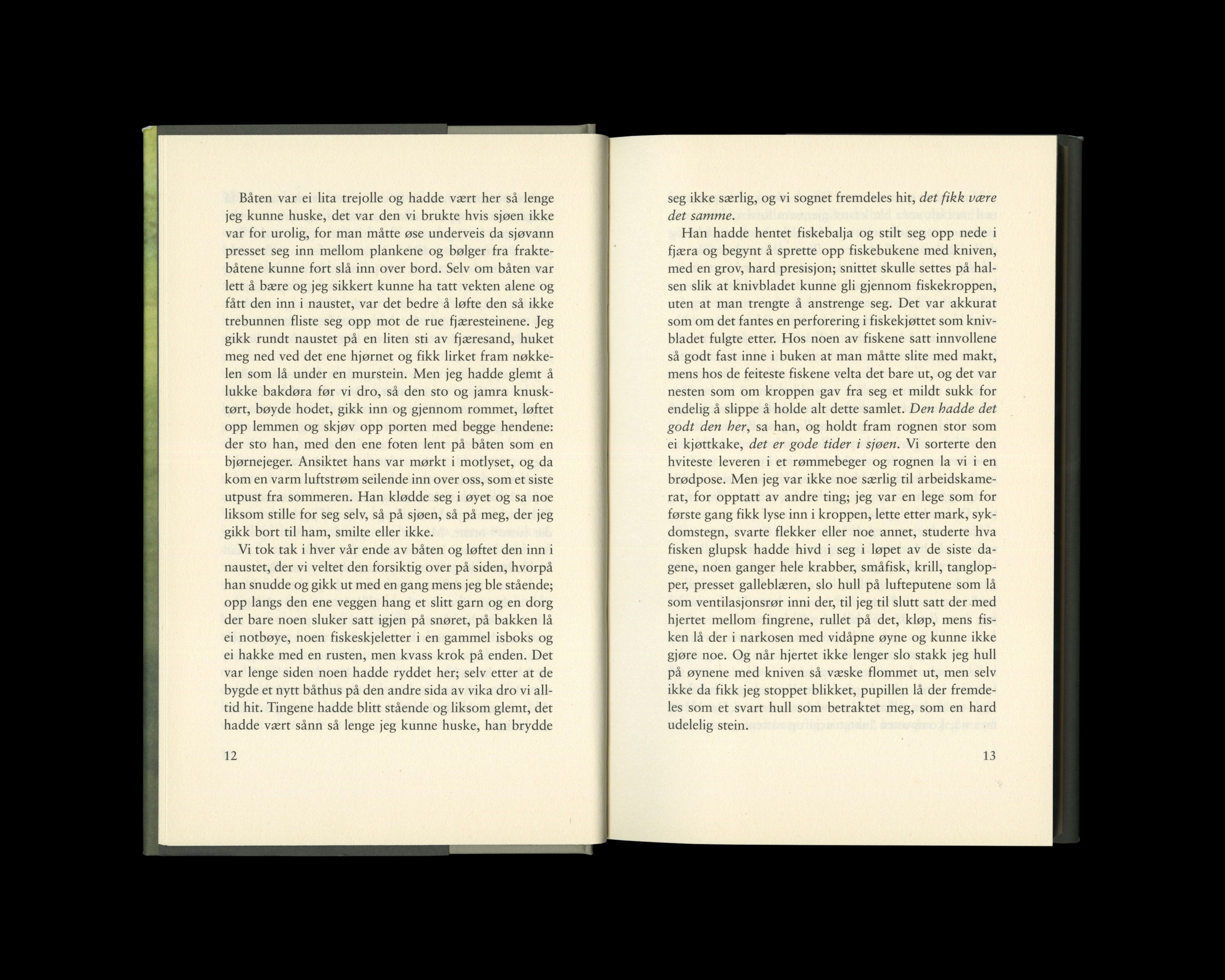WAKE ME UP IF I FALL ASLEEP
Vekk meg hvis jeg sovner
Fiction, Cappelen Damm (2009) This novel takes place in a coastal landscape and the plot is driven by the fact that Grandfather is losing control of the farm and distancing himself from the family. The writer’s sensitive handling of the mundane and his unique ability to bring memories to life makes for great reading.
He had heard rumours about the girl, the grandchild, it is a summer evening and still warm, but he puts on his coat anyway and carries the heavy tools (…) he doesn’t notice that the children are still out in the garden and running themselves ragged chasing one another, that the sore has healed, that the leg hairs are standing on end.

“Touching book about experiences that are excruciatingly painful. Evjemos strength is a rare sensibility in vision and language. It bears great promise for things to come. ”
“A debut with an exceptional mood creating ability, in a beautiful and somewhat sorrowful novel. ”
“The sorrow that the text presents is shaped in a beautiful, poetic language. Evjemo's imaginative storytelling has a precision that impresses this reader, and he employs various stylistic devices in a manner that yields great artistic effect, allowing the text to oscillate between poetry and realism. Eivind Hofstad Evjemo has learned more than just craftsmanship at the Literary Composition program in Gothenburg. ”
“At the border between sleep and wakefulness, we are as much in the inner as in the outer; at times, they meet and merge there, and it is something of this fusion the author achieves, a union where the distance between subject and object is more or less abolished. One can speak of modeling in time; in 'Wake Me If I Fall Asleep,' which is the title of the novel we are discussing, it happens, for example, that two experiences of showering, one where the narrator is a child, the other an adult, in the narrator's consciousness become one experience. We are inside what is seen and sensed, in a reality that triumphs over time and makes it a tool, a servant. Why? Perhaps because there is a sorrow that needs to be processed. There is a strong bond between the nameless boy and the nameless grandfather, and we more than suspect that there is one more person dying in the book. But the driving force behind the writing is likely something more than just emotional; when none of the characters in the novel appear by name, it must be because the author strives for a form of anonymity where experience, rather than the person, is at the center. It is generous, not least because the high language consciousness that characterizes the text results in passages that are as much poetry as prose, including in several of the chapter titles, and I quote three titles: 'Grief-Binding;' 'I stand in the body with guilt;' 'In a dignified light, we shall become.' It is beautiful; there is a kindness here, but without it becoming false idealization. For, as is typical, everything with the child: Thorns of horror poke up and give edge to the beautiful. ”


